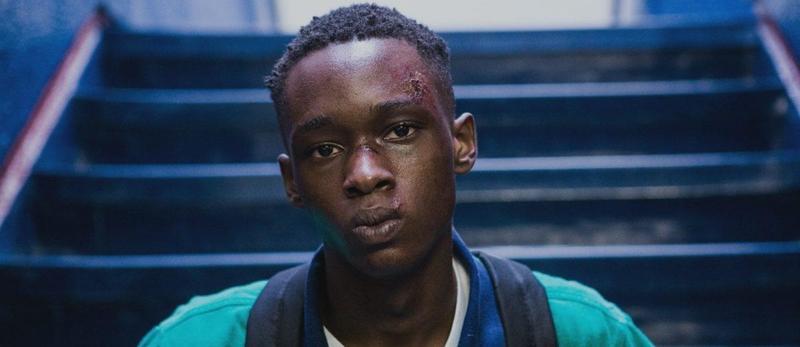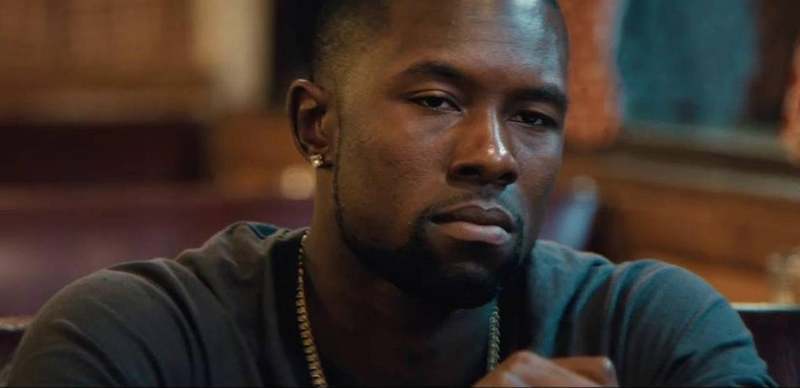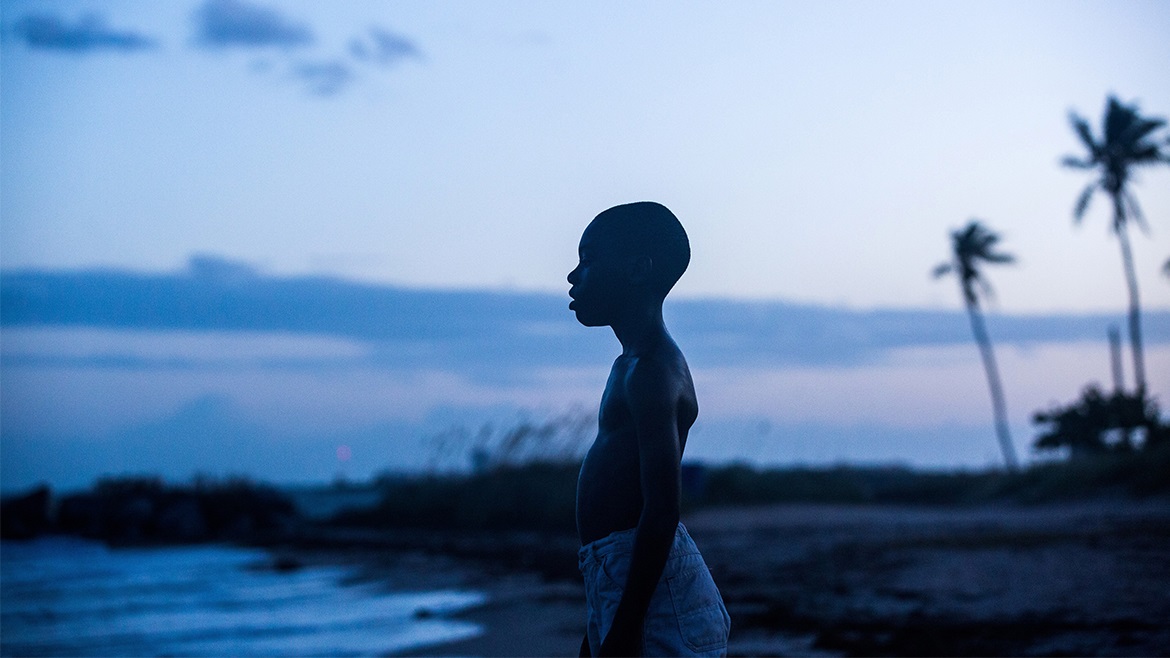This feature is a part of a series on the best films of the 2010s, resulting from our ranked top 25, which you can read here. This is #2.
After it was released, acclaimed, and then honored in one of the wackiest Oscar ceremonies of all time, there was a tendency on red carpets and in news reports to say that Barry Jenkins’ “Moonlight” was successful because it felt “universal.” It’s likely that the people who used this word meant well. They meant that they saw something and felt something that they didn’t think they would relate to in the coming-of-age story of a black kid in Miami named Chiron. “Universal” is a word that often reflects surprise at feeling empathy, but it obfuscates why this movie is a masterpiece. Not only is it a very specific film in its details, characters, setting, and emotion, but it’s also about how the labels of life are so deeply inadequate. No one on Earth is just a dealer, mother, son, teenager, addict, gay man, or black person. We are all deeper than the nicknames, brands and labels that society puts upon us, or that we place on ourselves. When Chiron and Kevin talk about just being drops of water in an ocean in the film’s centerpiece, they move closer to a deep, physical connection. In that moment, they are not just part of a vast ocean, they are not “universal.” They are real, three-dimensional and unforgettable.
“Moonlight” opens with an act of kindness. A man who was once called Blue (Oscar winner Mahershala Ali) finds a bullied, scared boy who he will call Little (Alex Hibbert) and takes him to get some much-needed food. One of the many thematic undercurrents in Tarell Alvin McCraney’s script is one of the power of connection and how those interactions can influence the rest of our lives. If Blue doesn’t tear down a board and take a kid to get some fast food, that same kid likely doesn’t have the courage to find his own happiness in the movie’s final scenes. And it’s not coincidental that Chiron’s reunion with Kevin, the one that leads us to one of the best endings in film history, also centers on food, a bookend that reflects a man subconsciously building on an act of kindness from so long ago.

Between those life-changing meals, we watch as a boy nicknamed Little grows up into a bullied teen named Chiron before becoming the muscular Black, a man who hides his pain and true self behind a superficial grill and cocky attitude (that only Kevin sees through instantly). The triptych storytelling structure allows a lifetime of development to be compressed into three chapters of a man’s life. In all of them, Chiron struggles with different forms of identity and the questions that surface for so many of us about masculinity and sexuality. We become invested in his well-being and eager to see him find happiness thanks in large part to truly brilliant and still-underrated performances from Hibbert, Ashton Sanders, and Trevante Rhodes, it becomes impossible not to feel for Chiron, not to want him to find happiness, which is one of the things that makes that final scene so powerful. It feels like reclamation, connection, and true happiness—two people finding each other in the vast coldness of the ocean.
It’s all in the details. Every music choice, costume, angle, set, are confidently of a piece, like an orchestra with every instrument in tune. Watching it again outside of the swell of support in 2016 is to learn that it’s even better than you remembered. It’s easy to catch something—a swoop in Britell’s score, or an acting choice by the young cast—that you didn’t the first time. It’s a film that feels fresh with each viewing, the kind of work that you revisit every few years at different chapters in your life and appreciate in new ways. Those are the truly great films—they don’t change, but it feels almost like they reflect our own changes.

One of the reasons for this is Jenkins’ balance of the lyrical and the realistic. He’s not afraid to present us with a poetic image like the smoke encircling the adult Kevin’s (Andre Holland) face as he looks directly at the camera. But he never lets his film drift away from the truth of his characters. Some of the movie’s grounding work comes from Naomie Harris’ excellent performance as Chiron’s addict mother. Working with Jenkins, she never allows that subplot of “Moonlight” to drift into melodrama, as it might have in the hands of a lesser director. And in her final scene, it feels like even she has reclaimed some of her own identity. Jenkins’ films allow for hope, even in their darkest moments, reflecting his compassion for his fellow human beings.
McCraney’s Oscar-winning screenplay is filled with excellent lines, but the one that defines the film is given to Ali’s Blue when he tells Chiron, “At some point, you gotta decide who you gonna be. You can’t let nobody make that decision for you.” It’s a line that’s echoed in the final scene when Kevin confronts him with the result of this line of thinking: “Who is you, Chiron?” We all go through our lives defined by external forces, whether they’re parents, classmates, partners, or merely perceived standards of society. “Moonlight” is an artistic reminder that nobody makes that decision for us, and it embeds that message of empowerment in a character-driven narrative. We see issues that have impacted all of our lives in this story and consider that connection “universal” because of what the film does to us emotionally, but not because it’s ever trying to appeal to a broad, common, simple narrative. This is one beautiful story: Chiron’s story.












